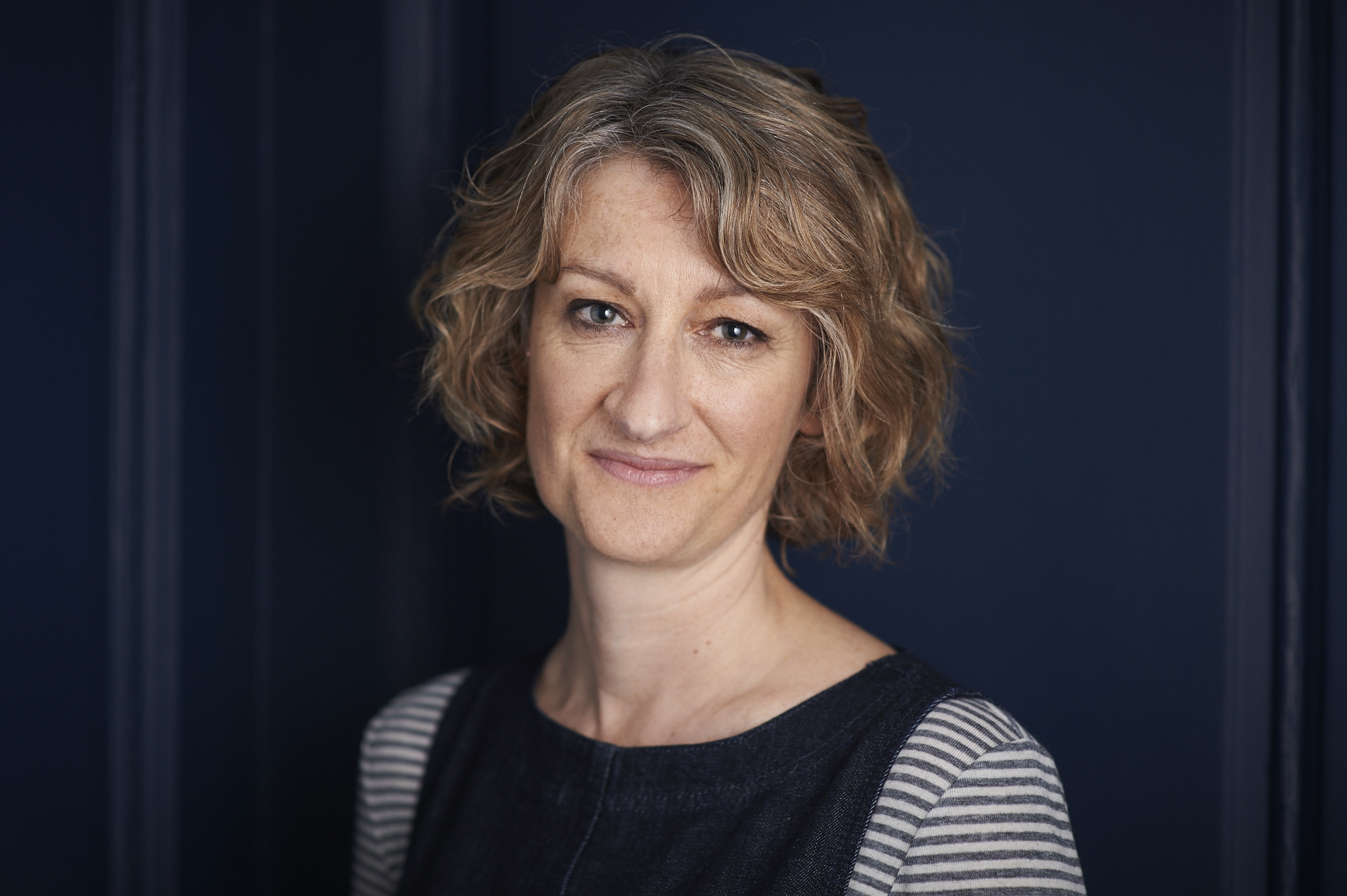 Emma Carroll rightfully wears the Queen of Historical Fiction crown. Wonderfully written thrilling stories, often with a supernatural edge, her novels have introduced young readers to a range of curious and fascinating historical events. Emma tends to avoid the more obvious periods of popular history that are part of the school curriculum, concentrating instead on bringing more obscure history to life. The Cuban Missile crisis is the unsettling backdrop in The Week at World's End whilst The Somerset Tsunami explores the 17th century witch trials and the deadly oppression of women.
Emma Carroll rightfully wears the Queen of Historical Fiction crown. Wonderfully written thrilling stories, often with a supernatural edge, her novels have introduced young readers to a range of curious and fascinating historical events. Emma tends to avoid the more obvious periods of popular history that are part of the school curriculum, concentrating instead on bringing more obscure history to life. The Cuban Missile crisis is the unsettling backdrop in The Week at World's End whilst The Somerset Tsunami explores the 17th century witch trials and the deadly oppression of women.
Historical fiction is one of the most popular genres on LoveReading4Kids and we know you will be thrilled that Emma Carroll is our Guest Editor for July. Read on for her insights, recommendations and tips to get writing (and reading!) this summer!
Hi everyone!
It’s a real treat to be this month’s Guest Editor on LoveReading4Kids because it means I get to natter on about my favourite subject – books! (and dogs, and tasty snacks) I bet you’re looking forward to the summer holidays, right? Not long to go now… I hope you’ve got lots of fun things planned. And if you haven’t, or if by week four you’re getting a bit bored, here’s something you might try.
First find a notebook (and a nice pen). You’re going to write a story based on places you’d like to be and/or people you’d like to meet. It’s a brilliant way to ‘escape’ the everyday world and can really feel as if you’re there in another existence entirely. Trust me – I do it for a living! Make the experience fun by creating a writing den – it might be a corner of a spare bedroom, a garden shed, under the dining room table. Make it cosy, comfy and above all, yours so you won’t be disturbed. Pets are allowed. Think about snacks because writing is a demanding business. I always write with a cup of tea at my elbow, and stop regularly for toast breaks (peanut butter and marmite topped with sliced cucumber, if you’re asking). Snacks will also make you very popular with your pet.
All of the above works just as well with reading books as with writing them, so why not give it a go?
Happy summer holidays, wherever your imagination takes you!
Emma
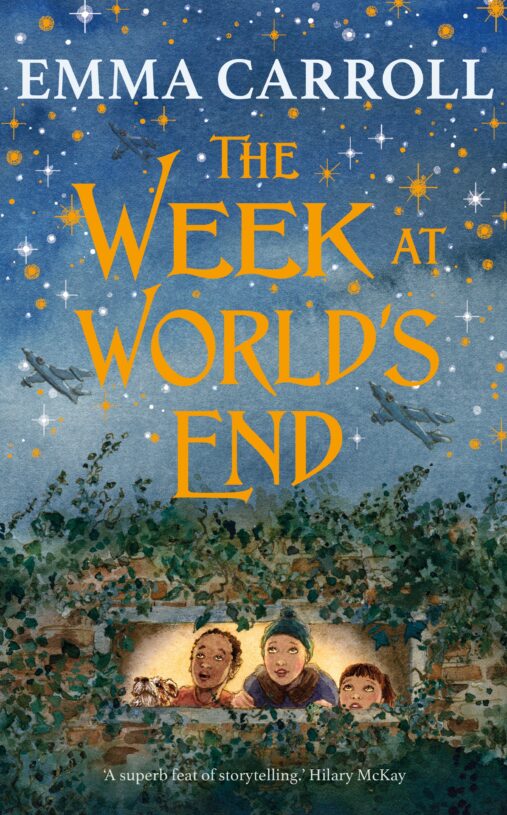 Many of your books capture a particular time in history and, within an exciting mystery story, provide a genuine learning experience. Why do you think it is important to engage children with history? I think it’s fascinating to see how people lived their lives in earlier times. I love domestic details such as food and clothing etc. and discovering things that feel both vastly different to the modern day, and uncannily similar. I’m particularly drawn to lives that don’t make the history books- e.g. children, the poor (girls in particular). Also, history can be a really helpful way in which to consider current issues such as prejudice and environmental concerns.
Many of your books capture a particular time in history and, within an exciting mystery story, provide a genuine learning experience. Why do you think it is important to engage children with history? I think it’s fascinating to see how people lived their lives in earlier times. I love domestic details such as food and clothing etc. and discovering things that feel both vastly different to the modern day, and uncannily similar. I’m particularly drawn to lives that don’t make the history books- e.g. children, the poor (girls in particular). Also, history can be a really helpful way in which to consider current issues such as prejudice and environmental concerns.
What is your research process in preparation for your writing? I do lots of online research as well as reading biographies, non-fiction, fiction set in the era. I look at newspapers, first-hand accounts, speak to people who lived through the period, if possible. I also set up Pinterest boards to get a sense of how the world might look. Some of the research I do is before the writing begins, some I do as I go along. Really, it’s all about world-building, creating an authentic backdrop in which your story can happen.
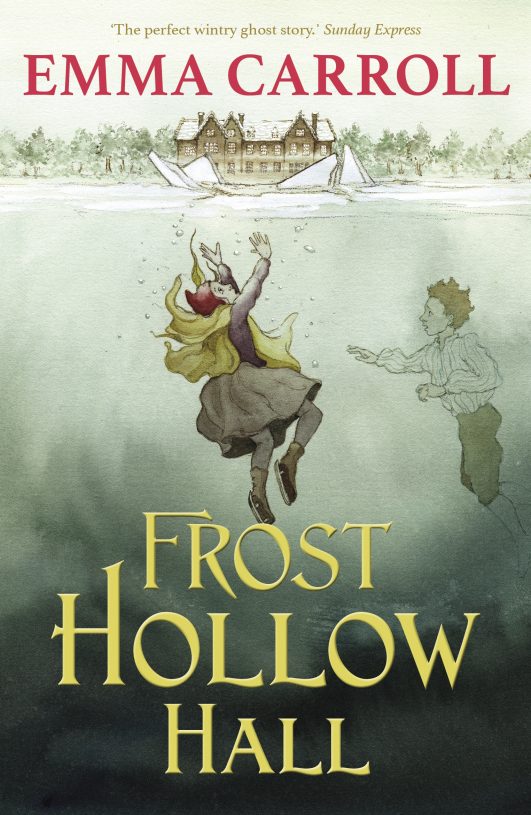 What historical age or event will you write about next? It will be either a story featuring Houdini, set in the 1920s, or a prehistoric adventure on Doggerland, the land that used to exist between the UK and continental Europe. Both stories are screaming to be told, I just haven’t decided which will come first!
What historical age or event will you write about next? It will be either a story featuring Houdini, set in the 1920s, or a prehistoric adventure on Doggerland, the land that used to exist between the UK and continental Europe. Both stories are screaming to be told, I just haven’t decided which will come first!
Do you have a favourite museum or historical website? Two sites I’ve used often are the newspaper archives at The British Library, and a BBC site called The People’s War which is packed with fascinating first-hand accounts of people’s memories of WW2.
Would you ever write a series or are you happy writing standalone stories? Interestingly, I’ve been discussing this with my publisher recently. I’d love to have a go at writing a series but I think its much, much harder than it looks. Three of my books, Letters From the Lighthouse, When We Were Warriors and The Week At World’s End do all link together but that’s as close to a series as I’ve got so far.
Who is your favourite fictional hero from children's literature? Podkin from Podkin One Ear. He’s a brilliantly reluctant hero.
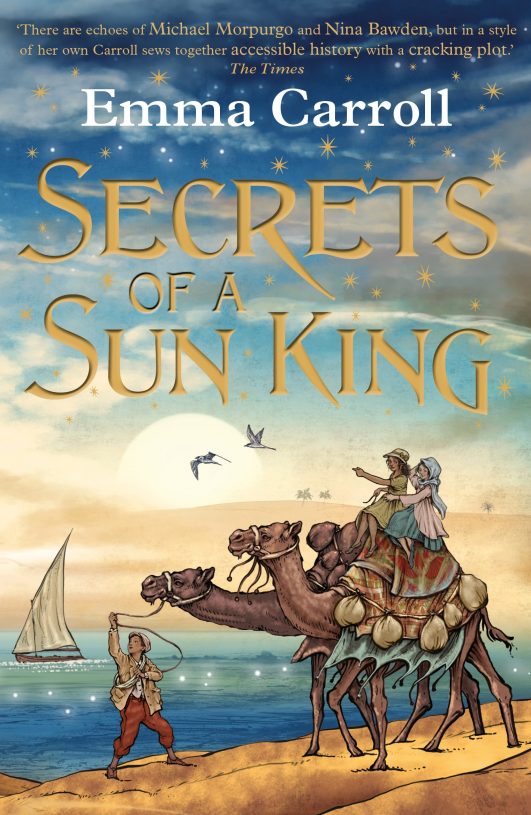 If you could meet any historical character, who would it be and what would you ask him or her? I’d love to meet Anne Frank. I’d ask her and her family to come to Britain to live with me.
If you could meet any historical character, who would it be and what would you ask him or her? I’d love to meet Anne Frank. I’d ask her and her family to come to Britain to live with me.
What was the first book you fell in love with? Comet in Moominland by Tove Jansson, which is all about a family of strange creatures living in Finland. I loved the sense of danger and impending doom- I was a very dark child!
What are you currently reading and which books are in your to-read pile? I’ve just discovered Alice Oseman (slow to the party!) so I’m about to start Solitaire, having read and adored Loveless. Also in my reading pile is The Shark and the Scar by Sarah Moore Fitzgerald and Dead Good Detectives by Jenny Maclachlan. I’m a huge fan of both of these authors so can’t wait to read these.
One in three of all books sold is a children's book yet children's books only get 4% of review space in the media. Why do you think this is - and what can be done? I assume it’s because the media thinks only grown-ups buy books, to which I would challenge anyone to go into a bookshop on a Saturday and see how many young readers are there, with their friends, poring over the books. It’s hugely frustrating to not have that review space in the media- and very short-sighted. Kids’ books create the readers of the future, so without them there wouldn’t be an audience for adult books.
What does LoveReading4Kids mean to you? It’s one of my absolute favourite sites for the latest book news and reviews, and to hear what young readers themselves think of the stories they’re reading.
As our Guest Editor, we asked Emma for her five must-read children's books and to tell us what makes them so special:
I, Coriander by Sally Gardner. A brilliant historical fantasy set in C17th London about a girl whose life changes dramatically when a pair of mysterious silver shoes arrive.
The Star of Kazan by Eva Ibbotson. I think this might be my favourite Eva Ibbotson. Set in Vienna, its the story of an abandoned baby who, in later years, is claimed by a strange aristocrat and whisked off to live a very different- and dangerous- new life.
Lampie and the Children of the Sea by Annet Schaap. A wonderful, fairytale of a story about the daughter of a lighthouse keeper who makes friends with a monster, and learns about freedom and being different.
Aarti and the Blue Gods by Jasbinder Bilan. Aarti lives on an isolated island off the coast of Scotland with an unpredictable aunt, and has no knowledge of how or why she came to be there. As the story unravels, and magic ensues, she begins to realise her past is a huge secret being kept from her.
For Love of a Horse by Patricia Leitch. This was my absolute favourite book growing up, and to this day it’s still very dear to me. It’s the first in a series about a girl who rescues a beautiful Arab horse from a circus. You don’t have to be pony mad to enjoy the Jinny at Finmory series: these are all great stories about how we connect with animals and the landscape around us.
Plus a bonus Book of the Month for July from Emma!
Drama and Danger - The Lizzie Belle Mysteries by J.T. Williams
There’s an absolute bumper crop of brilliant books out this summer, but my pick has to be the first in a brand new series, The Lizzie and Belle Mysteries by JT Williams (June, Farshore). The story is set in C18th London, and centres around Lizzie Sancho, and her friend Dido Belle as they try to find out who is threatening to murder Lizzie’s father, Ignatius, before his debut performance on the West End stage. Expect high-speed action, lavish period detail, complicated friendships and plenty of drama. It’s a fabulously told story- I couldn’t put it down!- and also gives voice to the experiences of people of colour in the C18th. Dido Belle and Ignatius Sancho were real people whose lives make for interesting reading. The Lizzie and Belle Mysteries does what, in my view, great historical fiction should do- it tells a cracking story from the view of someone you might not find in the history books. It’s a winner!
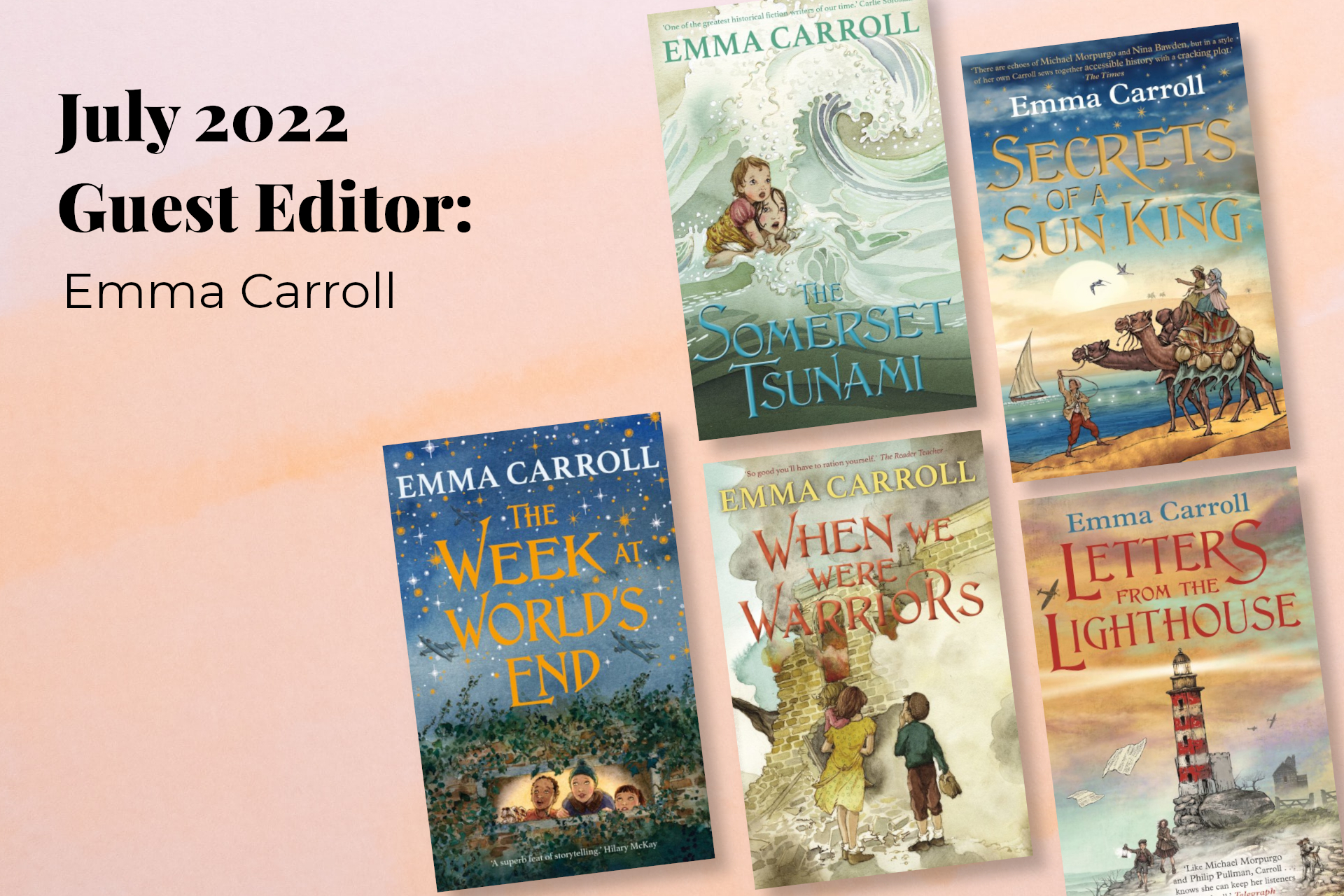
You can find Emma's entire collection of novels below.



























Comments (0)
Leave A Reply
You must be logged in to post a comment.